Advertisement
'I can build my future now': Why more women in Massachusetts are going into trades
Resume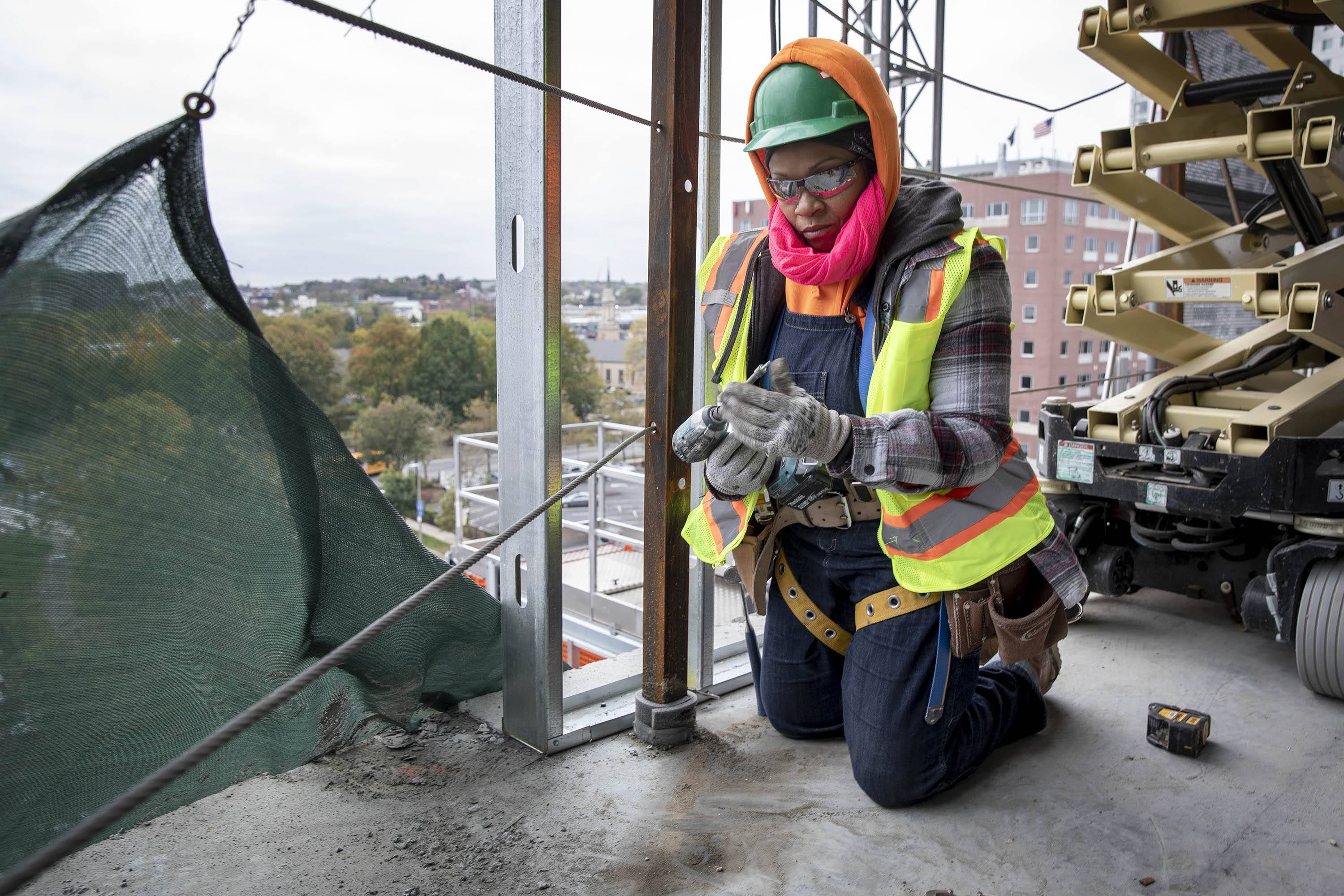
Eyoda Williams spends the morning drilling metal beams into the skeleton of a wall that will soon be part of a new building near Boston's South End. She tries not to look down at the road some 60 feet below — she's not afraid of heights, but still.
"I don’t like them," she said. "But it comes with the territory, so I got to get used to it."
Williams is a first-year apprentice with the Carpenters Local Union 327. When she walked onto a construction site for the first time two months ago, she was the only woman on her team.
"My mindset was, ‘Hey, don’t girl me,' " she said. "And they totally did not. That day, I must have cut like 500 boards for this deck we built."
"I never pursued it because the way that I was raised, the mindset and the stigma that this is a man’s job."
Eyoda Williams, carpentry apprentice
Williams laughed as she remembered how sore she felt when she came home, but it was a "satisfying sore."
"I earned my money today, like I worked today!" Williams recalled thinking.
Shortly after the pandemic hit, Williams, who is 47, was laid off from her job as a fitness instructor at the YMCA. She still had private clients, but she couldn't depend on them for a steady income because they're mostly seasonal.
A mother of six children — three of whom are still young enough to live with her — Williams had thought about reinventing her career before. But with family obligations, she never felt like she had the stability or the time to take the plunge. The pandemic changed the equation. Thanks to regular unemployment checks, she finally enrolled in a building trades pre-apprenticeship program called Building Pathways.
It was something she had always wanted to do.
"I never pursued it because the way that I was raised, the mindset and the stigma that this is a man’s job," Williams said.
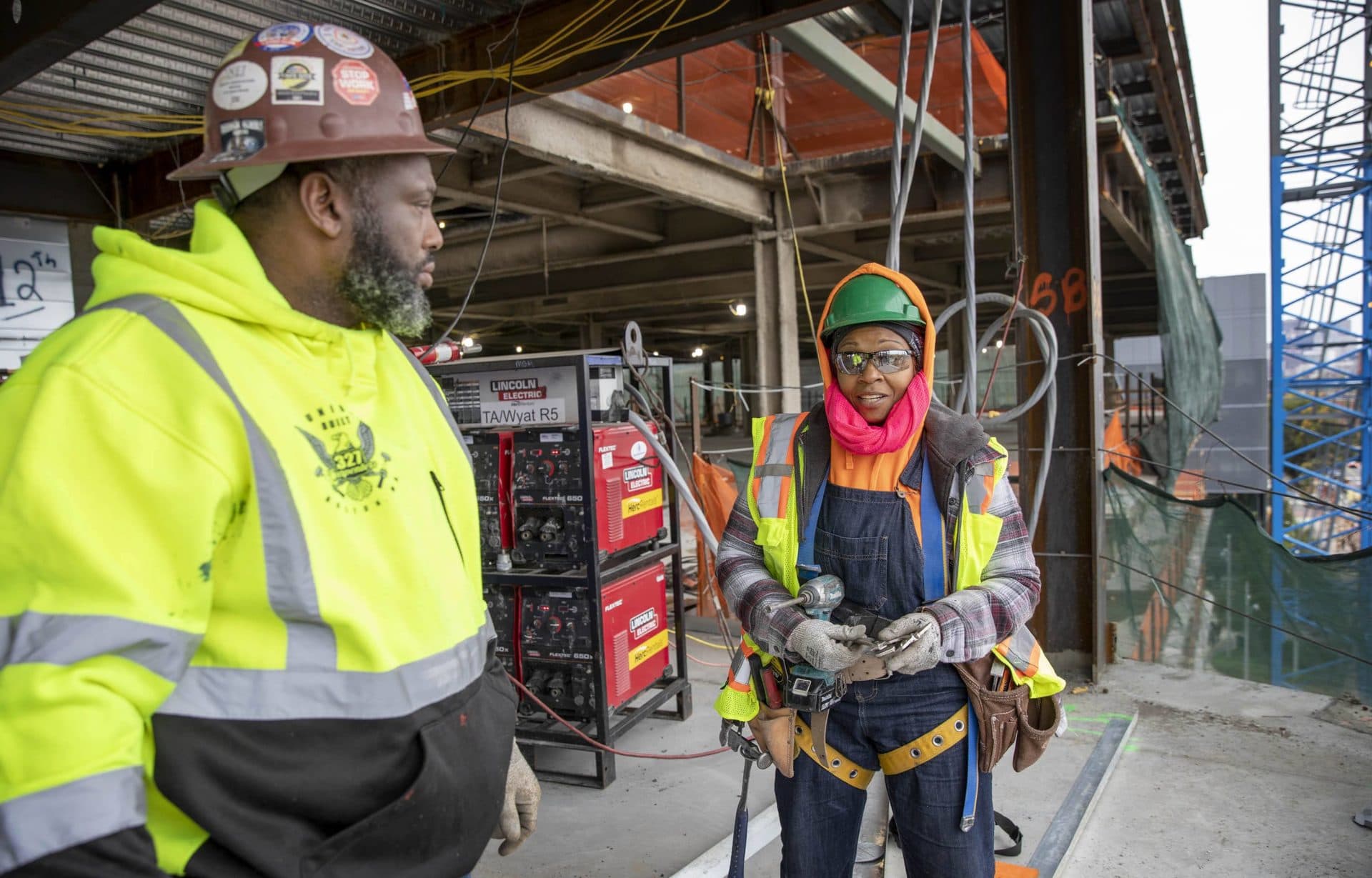
Now, Williams is one of a growing number of women entering trades like carpentry and plumbing. Construction is one of the few fields that gained women during the pandemic.
In Massachusetts, women make up 10.3% of trade apprentices, a number that's been rising in recent years. Although it may sound modest, it’s the highest share in the country. There's also a growing interest in the trades among girls, who now make up 21.1% of enrollees in Massachusetts high school vocational and technical programs.
The number of women in trades has steadily increased in Massachusetts over the last decade. Liz Skidmore, an organizer at North Atlantic States Regional Council of Carpenters, says that's partly due to a lot of work that's been done to recruit and train more women. But, she adds, the numbers really picked up when former Gov. Deval Patrick's administration began requiring contractors to hire more women and people of color in order to win state-funded building projects.
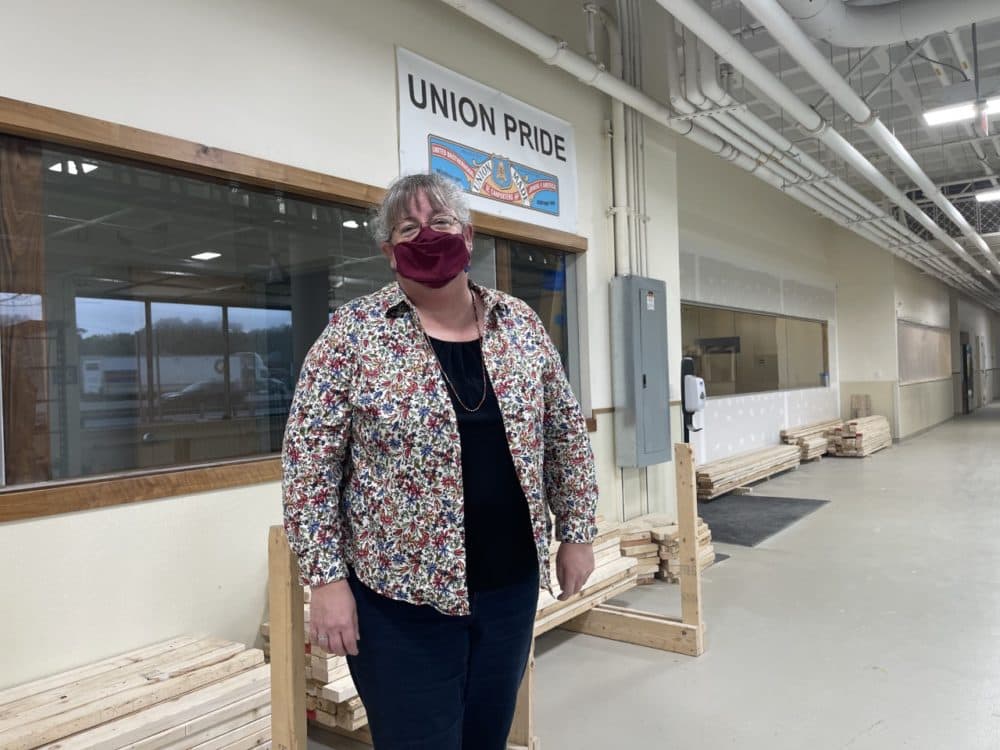
Unlike the state of Massachusetts, Boston has struggled to meet its own diversity standards in construction. None of the city's top projects in the last four years met the standards for hiring women, according to an analysis by GBH and Boston University's Justice Media Computational Journalism co-lab. Only a third met the standard for hiring people of color.
Skidmore would like to see more women enter this industry.
"These are fabulous jobs," Skidmore said. "They’re deeply satisfying. Like you get to drive around the city going, 'I built that.' "
Another reason why Skidmore wants to see more women go into trades: They pay well. An apprentice can make $20 per hour, while unionized full-time carpenters start at around $50 per hour. That's in addition to benefits that include health insurance and a pension.
The pay is part of what convinced Angela Lormeus, a second-year carpentry apprentice, to switch from a career in early childhood education.
"It’s crazy. I make more now, not knowing much of what I’m doing, than working with children with a bachelor’s degree," said Lormeus. "That was a huge motivation."
Lormeus earned a college degree in child, family, and community services, and she's still in debt from it. Although she loves working with kids, she says the job took its toll on her after 10 years. And she wanted a position that would pay better.
"It’s crazy. I make more now, not knowing much of what I’m doing, than working with children with a bachelor’s degree. That was a huge motivation."
Angela Lormeus, second-year apprentice in carpentry
"I can see that I can build my future now," Lormeus said. "Because of the pay rate in child care, I was never going to get out of the debt from school."
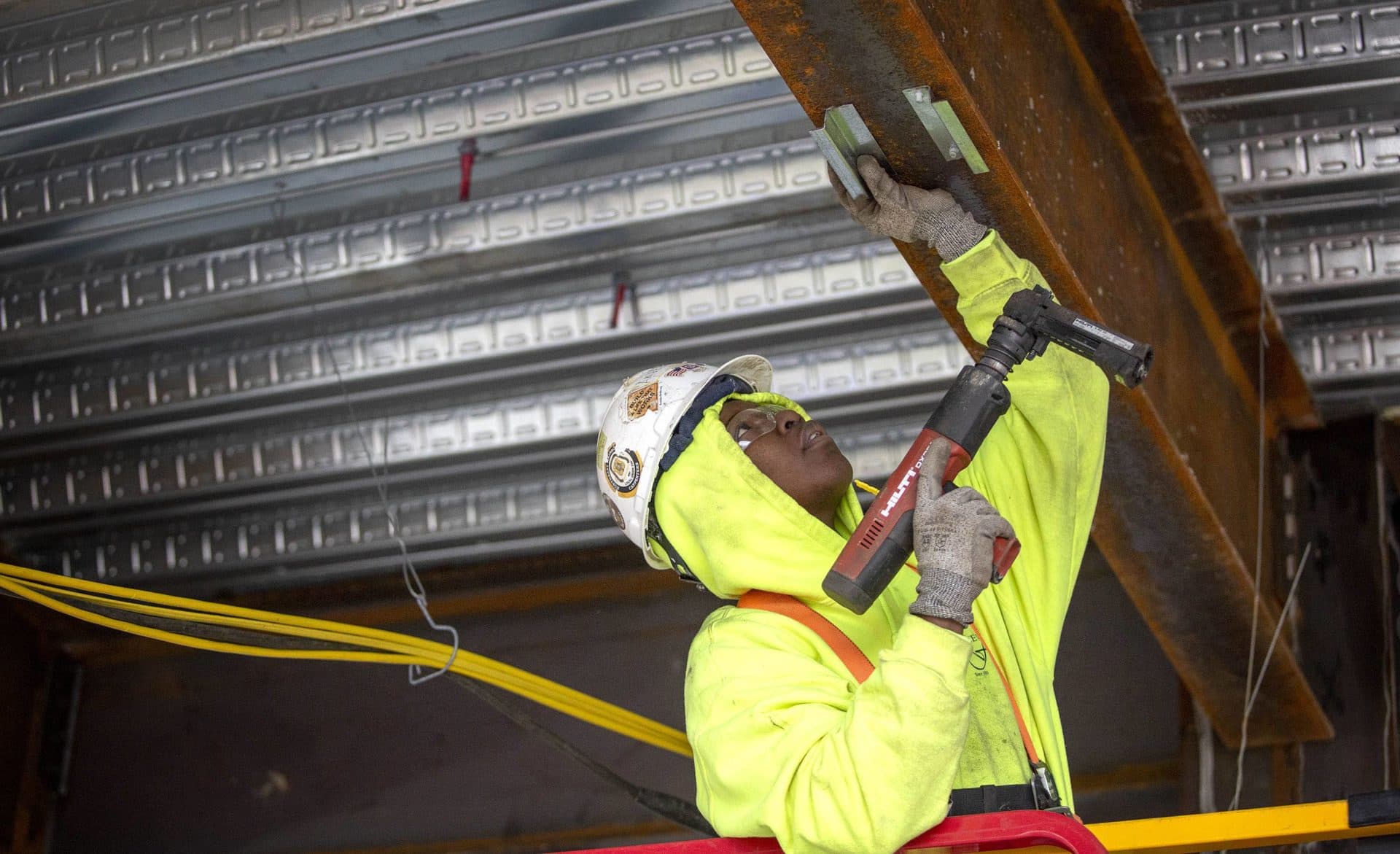
Lormeus says the shift from working in an environment with mostly women to working with nearly all men didn't feel like a major cultural shock to her.
"Honestly, it’s not that different," Lormeus said. "The gossiping is the same. The jokes are pretty much the same. The only difference I can say is ... the bathroom situation."
The idea that men in construction are more sexist than men in other industries is a persistent misperception, according to Skidmore. She believes this is another stigma that makes it difficult to recruit more women into the industry.
"There are stereotypes and discrimination in every industry," Skidmore said. "But this idea that somehow it's worse in construction, I just think is not true."
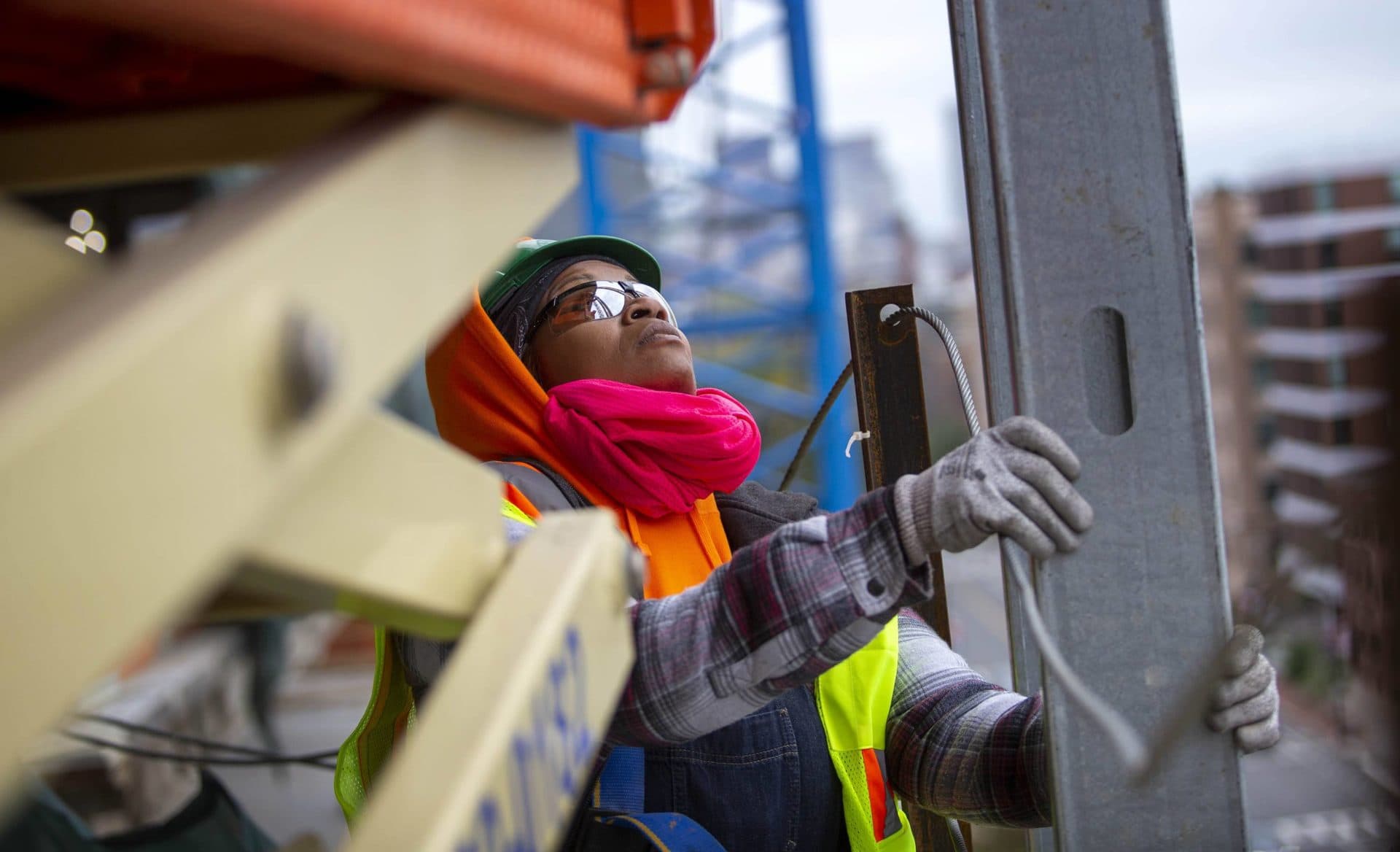
It’s a stigma that Eyoda Williams also had to shed. Now, she sees a space for herself and other women in the trades.
"I honestly cannot see myself going back to an office environment," Williams said. "I feel like I made the right decision for myself and also my family."
She's looking forward to the day when she'll be able to point to the site in Boston where she's been working as an apprentice and tell her kids, “I built that.”
This article was originally published on November 09, 2021.
This segment aired on November 9, 2021.
